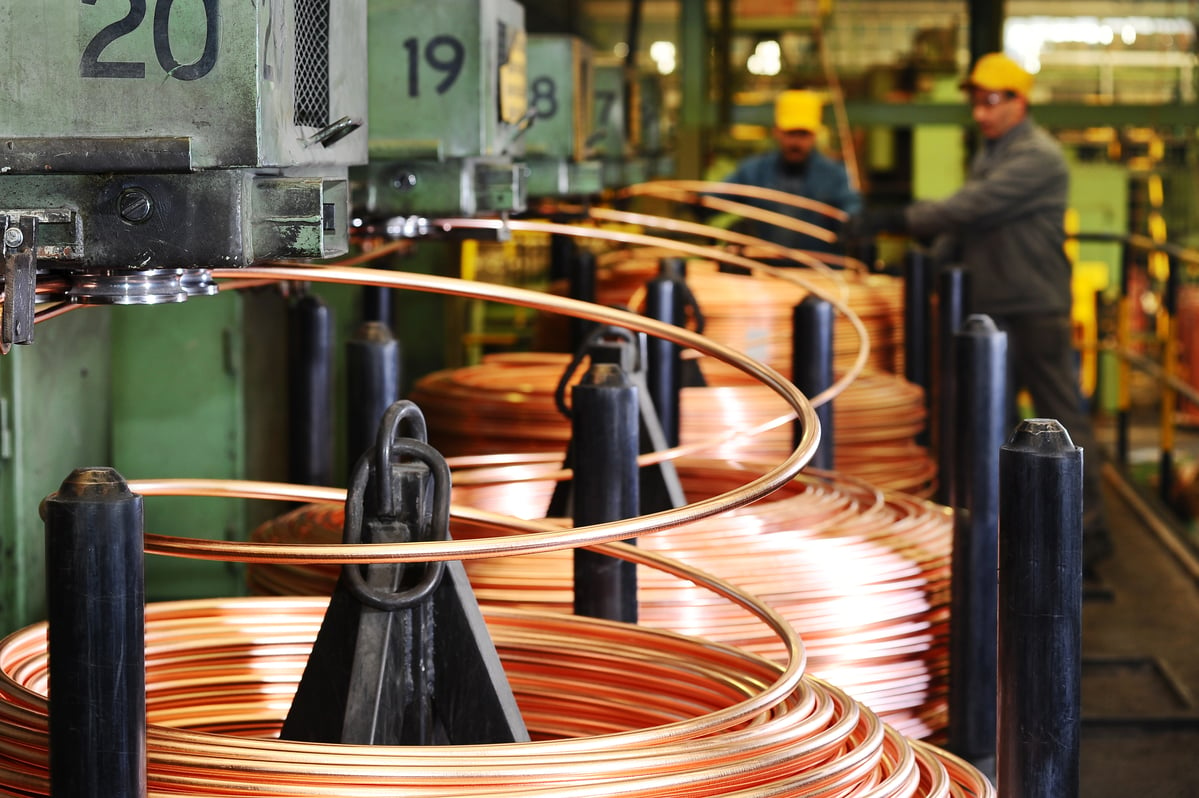
Image: Freeport-McMoRan.
Companies throughout the commodities industry have gotten hit hard in recent years, with Freeport-McMoRan (FCX +3.57%) suffering a double hit because of its concentrated exposure to the mining and energy industries. Recently, controversy has swirled around Freeport, as activist investor Carl Icahn disclosed a substantial stake last month even as the stock was falling to new multiyear lows. Yet even though Icahn's appearance and the potential for a sale or spinoff of the company's energy assets has helped lift shares from their recent low levels, many investors are forgetting the core challenges that Freeport-McMoRan faces if it wants to recover fully from its extensive losses since mid-2014. Let's take a closer look at Freeport-McMoRan to reveal the one thing above all that investors in the mining and energy giant should remember no matter what else happens.
In the news for all the wrong reasons
It's easy for investors to focus on the high-profile news items that Freeport-McMoRan has seen over the past couple of months. Carl Icahn's 8.5% stake in the company, which amounts to about $1 billion in value, was guaranteed to make a splash across the investing world, as shareholders hope that the activist investor can make headway in getting Freeport moving in the right direction again. With Icahn citing the potential for cost containment in the capital expenditures and executive compensation fields as well as pulling back on what he sees as "high-cost production operations," investors rightly see the potential for disruptive transformational moves within the company in the future.
At the same time, Freeport itself has focused much of its attention on its struggling energy units. The company has considered moves to raise capital through a partial sale or spinoff of its energy operations, and the plunge in crude oil prices has led to dramatic shifts in the unit's prospects for the future. In that light, Icahn's latest move seems almost like a distressed-asset purchase, with value investors looking for confirmation that Freeport might have sunk low enough to present an attractive opportunity for bottom-fishers.
The fundamentals of Freeport
Yet the one thing that Freeport-McMoRan investors need to keep in mind is that when you look at the company's copper segment, you see a business that faces major challenges from deteriorating commodity prices, and it's far less likely to recover quickly than the more volatile energy-segment counterpart.
Market prices are largely to blame for Freeport's copper woes. Since 2011, copper prices have fallen from a high around $4.50 per pound to below $2.50 per pound recently, as the same scaled-back levels of business activity in the construction and infrastructure arenas put a lid on copper consumption.
That in turn has pulled down top- and bottom-line levels across Freeport's copper network. Revenue levels in North and South America have remained fairly constant between 2011 and 2014, but sales from the company's key Grasberg mine in Indonesia have gotten cut in half over the past four years, and weakness in the molybdenum market has cut sales from Freeport's molybdenum holdings in half. Pre-tax operating profits have also suffered, with Grasberg seeing a more than 80% drop in the past four years while profits at its North and South American properties have also declined despite more resilient sales.
Looking forward, most analysts are mixed about where copper prices could go next. A recent earthquake in Chile brought concerns about the potential impact on mines in the South American nation, but the short-term spike in copper prices was fairly short-lived. More broadly, macroeconomic factors will have to improve considerably before anyone can start to claim that an end to the bear market in copper might finally be in sight.
Keep your eye on the ball
As important as Freeport's energy operations are, they're only one aspect of a much bigger company. Base metals like copper have played a much more vital role in Freeport-McMoRan's growth, and regardless of whether the company decides to hang onto its energy business or do a transaction to separate it out, investors will want to keep a close eye on conditions in the copper market to see whether Freeport will post a long-awaited recovery in its share price.






